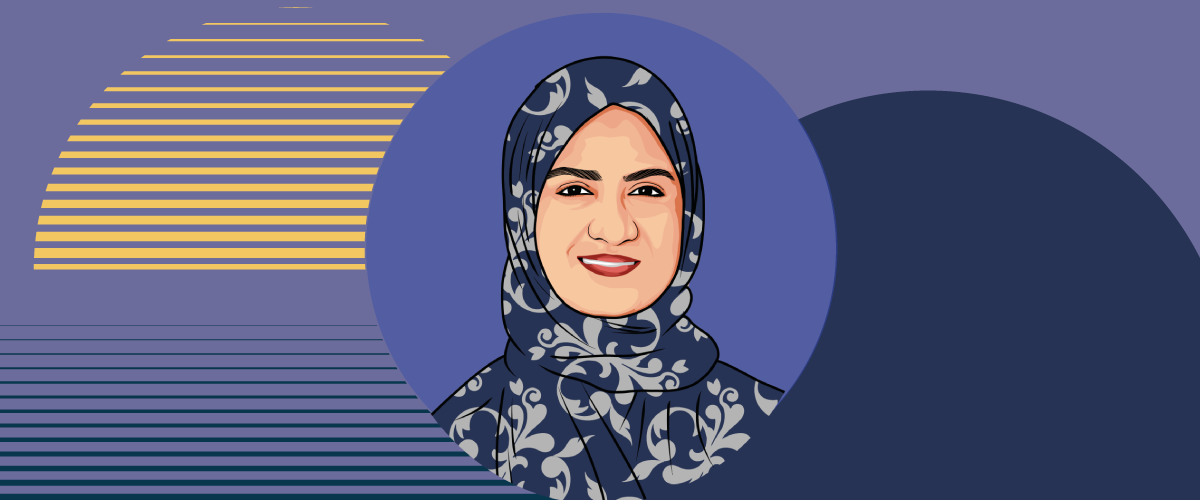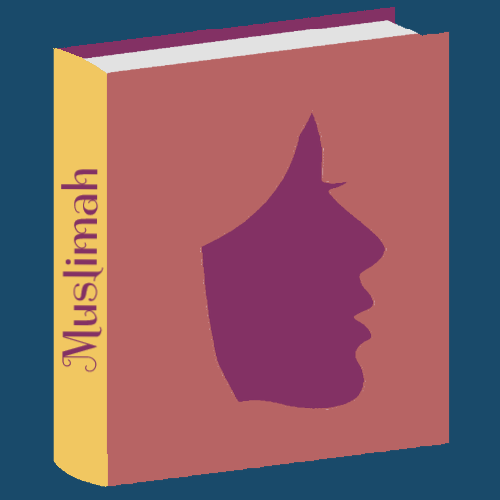
Sarah’s Odyssey — Sarah Shafiq
—by Seemab ZahraSoon Valley lies in the north-west of Khushab district in the Punjab province of Pakistan. It is home to the highest peak in the salt range, has three beautiful lakes, an ancient Hindu temple, and scenic beauty with waterfalls running down to rivers and lakes. Civilization in this valley dates back thousands of years, with the remnants still visibly present. At the heart of the Soon Valley lies Naushehra, a city surrounded by grasslands, natural pools and streams, and overflowing with natural resources and fertile farms. Although Sarah Shafiq was born in Lahore, Pakistan, her childhood memories resonate with the time she spent in Naushehra.
Sarah’s father worked in the Pakistan armed forces. Often, her family moved from province to province due to her father’s job postings. But no matter where they lived, Sarah’s father made sure to take his children back to their ancestral village in Naushera, to meet their own people. Sarah’s childhood was enjoyably spent in the nature-inspired rhythms of picking fossils, basking under the sun by the Uchhali and Khabikki lakes, hiking the most beautiful mountains in the Kallar Kahar salt ranges, and witnessing close up fragments of historical evidence of the Indus Valley civilization. All of these childhood activities took place at the doorstep of the great Himalayan Mountain range.
Growing up with cultural and historical richness surrounding her, Sarah learned a great deal. In the second year of her bachelor’s degree in Computer Sciences at the National University of Computers and Emerging Sciences in Pakistan, she realized that computer programming was not her passion. She wanted to learn more about politics and world affairs, knew she needed to change her field. After discussing the matter with her parents, Sarah and her family arrived at a reasonable compromise: after she had completed her bachelor’s degree, she could explore more broadly and find her focus. Sarah completed her degree in Computer Sciences, and went on to study Sociology at a graduate level.
Sarah was accepted into an American Ph.D. program at the University of Notre Dame, Indiana. This was the first time she had left Pakistan on her own, but change and travelling came naturally to her, so the transition was not challenging for her. Sarah found Notre Dame to be a rewarding place, with a great many resources. It was the first time she had seen so much diversity. She loved meeting people from all over the world and making friends from many cultures. It was also the first time Sarah met Muslims from other parts of the world. It was a most enriching experience for her.
Sarah was in the middle of her doctoral studies when she was introduced to her husband by a mutual friend. They became engaged in 2005 and got married six months later. For the next three years they stayed in the United States until Sarah’s husband landed a job with a company called Research in Motion (now BlackBerry) in Waterloo, Canada, in 2008.
As travelling and moving had become second nature to Sarah by now, moving to Canada was not an issue for her. Besides, she could also continue her research independently as a non-resident student. Sarah completed her Ph.D. in 2012. By that time, she had become a mother of a beautiful son.
When Sarah came to Canada, she was drawn to people. In comparison to the United States, Canadians were more welcoming to immigrants. It seemed that they had travelled to and seen more places outside Canada. Most importantly, Sarah also observed that systems seemed to work more effectively. In comparison to the United States, Canada enjoyed health care for all, and the media and justice system seemed to her to be comparatively fair and balanced. While everything seemed close to perfect, something led Sarah to focus on Islamophobia. Sarah had researched hate crimes while working as a research assistant at the University of Notre Dame. She was already aware that racism exists all over the world. As a student of social sciences, she had a keen eye for observing US foreign policy. She watched it from an outsider's point of view.
After spending some time within the community in Canada, Sarah was inspired by the idea of volunteering, which was quite new to her. She had spent a lot of time in academia; now she wanted to give back to the community. She was actively looking for venues where she could volunteer when she discovered an organization called the Coalition of Muslim Women Kitchener – Waterloo (CMW). She attended one of their events and learned about a future project they were planning on hate crimes during a meeting. This project struck her as really interesting, as it was in an area Sarah had already worked in; consequently, in 2011 she joined the CMW as a volunteer.
It was a small two year project, but around the same time, Sarah learned about Bill 94 in Quebec. It proposed to ban all kinds of religious head coverings in public offices. The bill impacted Muslim women in important ways. In 2015, during the federal election, when Stephen Harper’s government had been in power and when Justin Trudeau was running for the first time for prime minister, Sarah realized that Muslim women’s bodies were central to what was happening. She and her CMW team realized that Muslim women needed to reinvigorate the earlier work on hate crime that she had been engaged in. Sarah continued her work to spread awareness about Islamophobia with the CMW. Because public education efforts had never been focused at a municipal level, the kind of advocacy they were developing was ground-breaking. One other organization worked on the issues at the national level, but a dedicated staff working on Islamophobia at a community level was rare.
Sarah has served the community in many different ways. She started as a volunteer. Then, for two years she coordinated the program “Together against Islamophobia.” Currently she works as the director of programs and services with the Coalition. Sarah also teaches Research Methodology at Wilfrid Laurier University in Waterloo.
In addition to her academic role and community service, Sarah is fond of various kinds of sports and outdoor activities, something she was introduced to while growing up in Pakistan. She had already learned swimming and horse riding there, and when she came to Canada, she learned to skate and canoe.
Sarah’s father had an important role in her upbringing, forming her in many positive respects. He did not parent in a conventional way. He loved her a great deal and let her pursue her dreams. He was always open to discussion with Sarah on various topics, such as global politics, democracy, education as well as her personal interests. When Sarah got married, her husband supported her in a similar way. He offered the kind of partnership in which Sarah could pursue her dreams.
Inspired by the cartoon series Captain Planet that she was fond of in her childhood, Sarah was alerted to the importance of taking care of the planet at a young age. As a child she started to ask her family to avoid using plastic bags, and even now she makes sure that the choices she makes are environmentally friendly. She plants trees with her family in Canada, collects trash on walking and hiking trails, keeps bees at home and takes extra care while purchasing cleaning products, wanting to reduce the use of products with many chemicals.
Sarah prefers to conserve and reuse. She keeps disposable spoons in her purse, so they don’t use the ones from the store; this way, there is less plastic littering the environment. She wishes there was more public transportation in Waterloo Region so people could use their cars less often.
Sarah is hoping that someday she can replace her car with a bicycle — for good. She believes that just one person can bring about change, and it starts with our self. If we can’t make good choices, we cannot expect others to do so. She learned this concept of conservation while growing up. The culture in which she lived taught her to conserve energy by using less electricity and saving water. Her family also reused plastic bottles, and even glass bottles in Pakistan. Sarah grieves the loss of these values in Canada, and also in her original culture.
Born into a Punjabi household that followed modest living standards, Sarah's family always preferred simple food. She reflects those trends in her life today, and finds it amazing how simplicity is still relevant. In addition to her father’s habits, who would eat something as simple as boiled vegetables when she was little, her biggest inspiration came from Abdul Sattar Edhi, a man who runs the biggest philanthropic organization in the world. When Sarah read his biography, she learned that although Edhi Sahab had massive funding coming from sources all over the world, and he was able to feed many people through his enterprises, yet he would carry a piece of bread in his bag, consuming it with water. She connected those observations with the life of Prophet Muhammad (Peace Be Upon Him), who could live without cooked food for three straight days, and would give food to those less fortunate. “And I can’t let a day go by without turning on the stove,” Sarah states.
The recent attack on a Muslim family in London, Ontario did not come as a shock to Sarah. She has been addressing Islamophobic hate crimes for 10 years with her team. She blames the mainstream media for naively supporting the Global War on Terror for years. Sara shares her concern by saying “When we wage war on Muslims and call them terrorists, when Muslims come to Canada, they still remain enemies to many!”
Sarah covers her head. She is proud of who she is, the choices she makes, her cultural connections, and her history. Her travels, schooling and far-reaching hands-on projects in the community and her family life have built up a store of creative life lessons that she is eager to share with others. Sarah has learned to see the world with a wide-angle lens, where everyone is included without differentiating in terms of race, culture, religion and skin colour. She wants to be included in the same open-hearted way that she embraces others.
